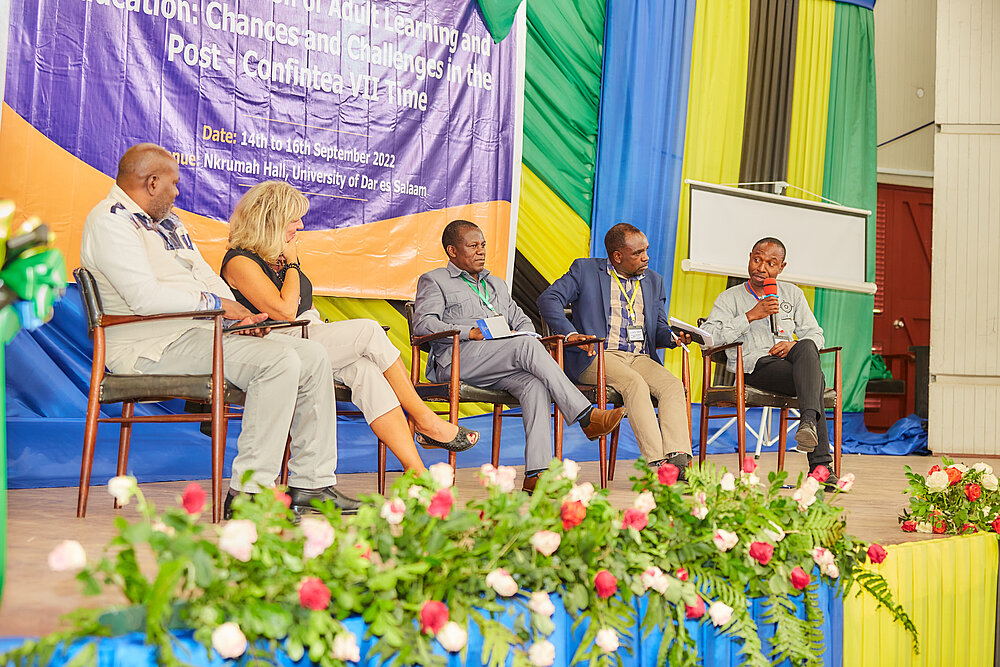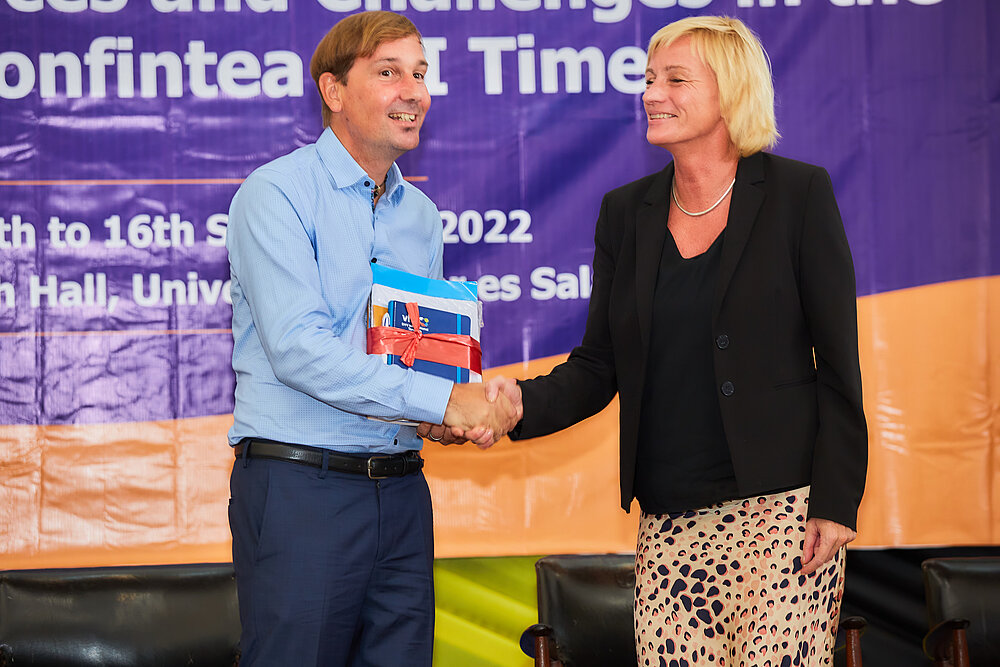The regional conference Professionalisation of Adult Education: Chances and Challenges in the Post-Confintea VII Time was held at the University of Dar es Salaam, Tanzania on 14 and 15 September 2022. There were more than 100 guests from the 3 partner countries in the East/Horn of Africa region (Ethiopia, Tanzania, Uganda), including representatives from government, academia and civil society organisations. Christoph Jost, the Director of DVV International Germany, Johann Sperrfechter, the Head of Regional Development Cooperation, German Embassy Tanzania, Angela Owusu-Boampong, the Education Programme Specialist at the UNESCO Institute for Lifelong Learning, and Katarina Popovic, the Secretary General of the International Council of Adult Education, discussed the implementation of the Marrakech Framework of Action (MFA) from an East African perspective.
The Marrakech Framework of Action
The MFA, recently adopted at CONFINTEA VII in Morocco, highlights the crucial role of professionalisation in ALE and underlines the need for a comprehensive approach and partnership at all levels and pathways toward professionalisation in ALE system development and the strengthening of ALE service provision at the local level. Community learning centres (CLC) should be well-resourced with qualified adult educators to ensure relevant ALE training and learning initiatives.
The conference concentrated on three objectives. Firstly, the potentials of the MFA were to be analysed and recommendations for its implementation by the different stakeholders were to be formulated. Secondly, the participants wanted to explore the state of the professionalisation of ALE in East Africa/Horn of Africa. In this context they also wanted to share their experiences concerning the implementation of the Curriculum globALE. Thirdly, the role of Community Learning Centres (CLCs) in adult education and literacy and their contribution to the implementation of ALE was to be discussed. This included an introduction to the DVV International regional CLC Operational Guidelines for the region.
Plans for the region
The participants came to a number of conclusions which are crucial for the implementation of ALE in East/Horn of Africa. They agreed on professionalisation being imperative and useful for policy, funding, advocacy and quality improvement for ALE programmes. They underlined that enacting ALE policy demands agreements on national goals and priorities, cooperation between different stakeholders, including ministries, governmental and non-governmental organizations, academia, providers, business entities and learners. Data on ALE will be collected in order to establish a database for policy-making. The participants also committed to making sure that political and government leaders from the grassroots to the national level are engaged in the development of ALE. Participation strategies and programmes to attract more learners are to be improved. Funding shall be increased, e.g. by reviewing the distributions of national budgets. To gain stakeholders’ support for this, strategies have to be developed to prioritise ALE funding by showing the benefits of ALE. Public recognition must be ensured for outcomes such as certificates, credit points, etc., received by ALE participants and graduates.
The two-day conference was followed by a field visit to a Folk Development College, an adult education centre in Kibaha Town about 40 km from Dar es Salaam.
In his closing remarks to the conference Mr. Venance N. Manori, Director of Basic Education in the Ministry of Education, Science and Technology of Tanzania, said: “We thank DVV International for convening this conference, which helped to remind those who did not get the opportunity to participate in the CONFINTEA VII in Morocco about the resolutions made at CONFINTEA VII. We learned from various presentations and discussions that illiteracy is still persistent among our communities. Further to that, our adults critically need relevant and useful new knowledge and skills to manage the current socio-economic realities and the demands of life. Hence, our national governments still have critical roles to play in developing ALE.”





